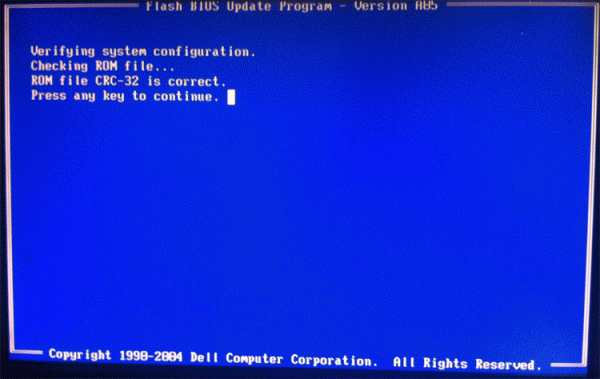
The best and maybe the most compelling reason for BIOS reflash is; it’s usually free as you can easily download the latest BIOS from your motherboard manufacturer. Finding the latest version is often easy; all you have to do is to choose the one with the most recent release date. Popular motherboards usually use Award, AMI and Phoenix as its BIOS programming. In many cases, upgrading the BIOS is not necessary as your motherboard is fully tested to run optimally in all conditions and should run most input and output devices nicely. If your motherboard doesn’t recognize a device, it will tell the operating system to accommodate it through the use of device drivers. For example, if you add the latest graphic cards such as ATI Radeon HD 5970, you should download the latest ATI Catalyst driver from the ATI site, to allow the card communicates properly with your motherboard.
If you can easily make your new devices run adequately with your system, do you really need a new BIOS? Actually, there are times, when device technology has advanced so far ahead the BIOS programming that even device drivers cannot keep up. For example, you bought an early AM2 motherboard in the summer of 2006, paired it with an Athlon 64 X2 4000+ and now you decide to upgrade to Athlon X2 7850 which, luckily still supports the AM2 architecture. However, the processor actually uses AM2+ design and your four-year old motherboard simply doesn’t recognize the newer standard. If you’re lucky, your motherboard manufacturer may provide the new BIOS to allow your old AM2 motherboard to support AM2+ CPUs.
Upgrading the BIOS is as easy as placing the most recent BIOS file in a floppy or a USB flash drive and follow the upgrade procedure in the BIOS menu. Make sure you have a reliable power during the process, however many recent motherboards have backup feature to prevent a total loss after a bad BIOS upgrade due to the power issues or corrupted BIOS files.
BIOS upgrade may also be necessary if it can improve or optimize I/O speed or in rare cases to fix bugs found in early motherboards. If everything works just like your expectation, you should find no real reason to upgrade the BIOS. Especially if you have an older motherboard without a proper protection against bad BIOS upgrade. Many computer owners decided to upgrade the BIOS in the Sunday morning just to have an experiment and perhaps a little fun; and to their woes found that their motherboards were simply useless after a failed BIOS process. It may not happen to recent motherboard models, but you are better off spending your spare time downloading latest device drivers and updates for your software.
A newest version does not always better, a new BIOS may allow your computer to run a new components, but it can also introduce new bugs due to bad programming. Before upgrading the BIOS, you should also download the original BIOS file from the manufacturer site, so when you experience unexpected problem after an upgrade, you can always reflash the original BIOS file and make your computer works properly again.










Comments